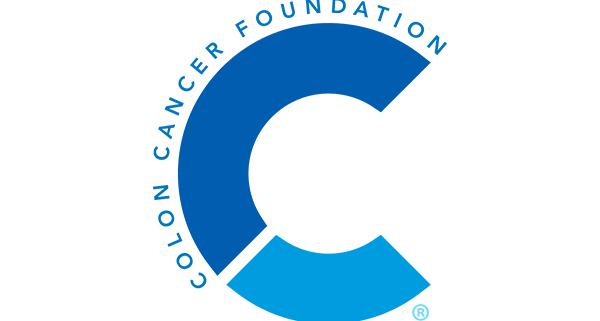The Colon Cancer Foundation is pleased to announce Dr. Jenny Lazarus as a recipient of the 2019 Colorectal Cancer Research Scholar Award. Dr. Lazarus currently focuses on immune therapy, combined with looking at colon cancer at a microscopic level to understand how the cancer cells interact with other cells. She will join the Colon Cancer Foundation at the Colorectal Cancer Research Scholar Award Presentation this year. Read our interview to learn more about Dr. Lazarus and her role in colorectal cancer research.
Tell us about your background.
I am from a small town in the mountains of Northern California. I received a Bachelor of Arts degree from the University of California at Davis in Classical Civilizations with an emphasis on Latin poetry and Roman art. I completed my Medical Degree from Ross University in Dominica, West Indies. I have traveled to many places in my life and my ultimate goals are a cure for cancer and relief to pain and suffering in the world.
What made you interested in colon cancer research?
Colon cancer has afflicted many people and although we have made improvements, a large group of people are still suffering.
Tell us about your past work and research efforts in the past and its significance to colon cancer.
My past work as a surgeon in training at Texas Tech Health Science Center in Lubbock Texas, where I will return to finish my training this July, has and will prepare me to treat individuals who have colon cancer surgically. My research efforts at the University of Michigan have focused on patients who have colon cancer that has spread to other organs where surgery is no longer a cure.
When did you first know that you wanted to work in surgery, and why were you so passionate about that?
During my third year of surgical training, I was involved in the care of a child that was diagnosed with cancer that was not able to be cured by surgery alone. We employed the help of other physicians who were research scientists for the care of the child. That experience helped refine my focus into pursuing a career where I could not only alleviate suffering with surgery but also investigate the cancer itself to further enhance the life of the patients where surgery alone was not a cure.
Describe the current colorectal cancer research you are conducting.
Immune therapy is currently used to treat a small subset of patients with colon cancer. In this small group of people, the tumor itself is unique and the treatment is effective often giving patients a cure. We are looking at colon cancer at a microscopic level to understand how the cancer cells are interacting with other cells. Understanding the immune cells in the tumor is just as important as understanding the cancer cells in determining how immune therapy works on specific individuals and not others. We are currently investigating the interactions between these cells. In doing so, we see patterns emerging in different patients with colon cancer. Each patient has a different pattern of cell types and some patients have similar patterns to each other. We found that patients who share a particular pattern of cells in the tumor are likely to benefit from immune therapy thus increasing the number of people who can receive and benefit from its treatment.
What is your mission and goals in the current work that you are doing?
My primary overall mission is to cure colon cancer. Although a daunting task, I believe it is possible. The cohesive and dynamic team in the Department of Surgery at the University of Michigan has brought together many individual’s research strengths into one collaborative unit where thoughts, ideas, and expertise can meld together for the improvement of the lives of patients. Our goals are to develop new ways of analyzing tumor cells and their interactions with other cells as well as increasing the collaborative environment with other physicians and surgeons to better the quality of patient’s lives.
What are your goals for your future?
I will finish surgical training at Texas Tech Health Science Center in Lubbock Texas and pursue a career in academic research as a surgeon-scientist. I have learned the importance of a team approach, a model I will take with me and employ when I establish a laboratory in the future. I plan to focus on innovative surgical and research techniques as well as foster a rich collaborative environment with not only other physicians and researchers but also foundations and the community to bring information and new treatments to patients as quickly as possible.
What would a colorectal cancer breakthrough mean for millions of people?
I do think we are close to a breakthrough! We were ecstatic to discover the possibility of another group of individuals with colon cancer that may very well benefit from immune therapy which is already being used in a smaller group of people. A breakthrough for a cure would not only impact people who have cancer, but also their friends, family members and co-workers. We are all connected in one way or another and any impact on the health and prosperity of even one person can influence the world.
Why is it so important that we all support research conducted in the field of colon cancer treatment and prevention?
As surgeons, we are able to help people immediately by removing colon cancer itself, this can alleviate pain, stop the cancer from spreading, and for many people this is a cure. Sometimes however when someone has surgery, colon cancer can come back. In addition, some people learn they have cancer after the colon cancer has already spread. In these cases research is the future hope for a cure. Individuals and foundations like the Colon Cancer Challenge Foundation are vital for a cure. Funding for research is scarce not only for researchers themselves but for the equipment and resources needed for study. Support from the community is vital to a future cure.
How has the 2019 Colorectal Cancer Research Scholar Award changed your life?
This award really has confirmed the focus of my career. I feel supported in the research I am conducting but also feel supported as a researcher, this has propelled my energy and focus toward my future goals in knowing that the community supports not only my research but myself as a surgeon-scientist.
The Colon Cancer Foundation would like to thank all of our volunteers for their hard work and donations to make the 2019 Colorectal Cancer Research Scholar Award possible. Learn how you support Dr. Lazarus and work toward a cure for colorectal cancer at our website.




